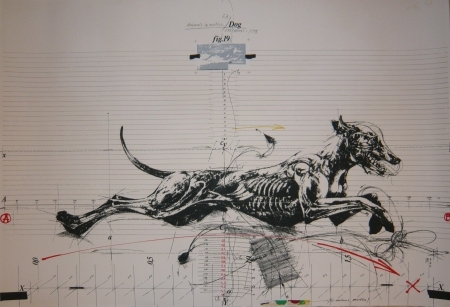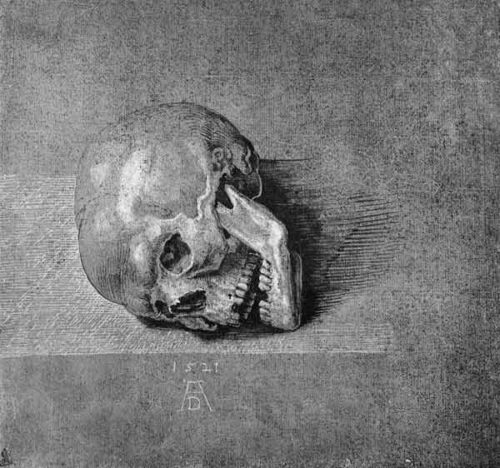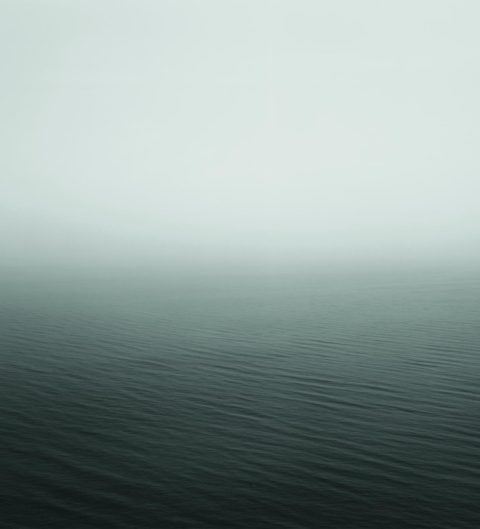
Roni Horn, photography.
“Because what a child wishes seldom comes in time.”
Ernst Bloch
“…their knees
were smashed
on small rocks
as their poor pinnace likewise poorly lay…”
Charles Olson
Maximus Poems
“But that which is the dawn is—a face, a look. It is a man on a ship. It is the successful termination of an experiment. It is discovery. At this a light does penetrate without announcement everywhere. It is indeed like the epidemic, in its humanity, the fullness of its rise. It is indeed a love that willynilly mounts.
So is writing that is not infused with a light which is already at the edge of our understanding—dark.”
William Carlos Williams
One of the clear effects of mass digital culture is an unparalleled homogeneity. As children, Bloch points out, there is still an *outside* full of wonder. The attraction, when we are young, of the criminal, the delinquet, the outsider (!) is that they beckon to something institutions are already crushing. The appeal of coastal dwellings is that the represent the edge of the paper on which children draw and scribble. The coast of anywhere contains something of the off-stage, of the unconscious, too. Melville begins Moby Dick with a dream of going to sea.
“Call me Ishmael. Some years ago — never mind how long precisely — having little or no money in my purse, and nothing particular to interest me on shore, I thought I would sail about a little and see the watery part of the world. It is a way I have of driving off the spleen, and regulating the circulation. Whenever I find myself growing grim about the mouth; whenever it is a damp, drizzly November in my soul; whenever I find myself involuntarily pausing before coffin warehouses, and bringing up the rear of every funeral I meet; and especially whenever my hypos get such an upper hand of me, that it requires a strong moral principle to prevent me from deliberately stepping into the street, and methodically knocking people’s hats off — then, I account it high time to get to sea as soon as I can.”
Far later, Melville writes….“It is not down in any map; true places never are.” The digital satellite photos of earth are disenchanting and alienating. There is nothing that beckons us. Bloch tells us the elemental image of a ship depicts the will to depart.

Laocoon and his Sons (late Hellinistic)
There is a telling side bar worth noting here, and that is how translations of classic texts change in each new era. Daniel Mendelsohn wrote a short piece on the translators of Homer not too long ago and it is worth reading for it touches on the way language has come to detach from the material world. (http://www.newyorker.com/books/page-turner/englishing-the-iliad-grading-four-rival-translationshttp://www.newyorker.com/books/page-turner/englishing-the-iliad-grading-four-rival-translations)
The evoking of a sounds become image, and today image becomes code.
When one thinks of mass culture today, and that means for the English speaking world essentially Hollywood, there is a profound deficit in all things elemental and evocative.
“Herophile prophesied the coming of Helen, “how she
would grow up in Sparta to be the ruination of Asia and
Europe.” In her verses she sometimes calls herself Artemis,
and she also claimed to be Apollo’s sister, or his daughter.
Some permanent bond linked her to Apollo Smintheus, the
Apollo of the Rat, harbinger of the plague. You can still find
Herophile’s tomb in the Troad, among the trees of the wood
sacred to Apollo Smintheus, and the epitaph says: “I lie
close to the Nymphs and to Hermes. I I have not lost my
sovereignty.”
Roberto Calasso
The Marriage of Cadmus and Harmony

Fragment of statue of Constantine 1st. (Capitoline Museum)
This was the month that Hollywood premiered new TV series. Mostly, beyond the banality, what I noted was how acute felt the presence of the military. One wonders just what mechanisms have led to this amount of overweening jingoistic storytelling. Are producers just falling in line with a societal group think? Are writers — well, the ones hired by those producers — just empty shallow hacks? I only bring this up (and honestly, Designated Survivor can stand in for all shows as it is the quintessential new prestige product for the industry) because of how little one feels transported or taken on a journey of any kind. Olson said myth was corrupted by fascism.
“Don’t think whaling was any different from any other American industry. The first men in it,
the leaders, explorers,
were WORKERS. The money and the glory came later, on top with the exploiters. And the force went down,
stayed where it always does, at the underpaid bottom. Where the worker is after the leader is
gone.”
Charles Olson
Today there are no underclass voices in mass culture. And that absence is felt throughout the products that corporate entertainment turns out. Melville wrote in his notes, in the margins of his copy of Shakespeare’s plays, his thoughts on *original characters*… that they are
“like a revolving Drummond light, raying away from itself all round it—everything is lit by it, everything starts up to it (mark how it is with Hamlet)”.

Paul Anthony Smith
Don Quixote, Hamlet and Milton’s Satan. And in Melville, there are always the stage props. The coin nailed to the mast, and the head of the sperm whale. The supernatural in both Shakespeare and Melville, much as in the Old Testament, is treated as the tragic revealing.
Olson wrote…
“It has to do with size, and how you value it. You can approach BIG America and spread
yourself like a pancake, sing her stretch as Whitman did,
be puffed up as we
are over PRODUCTION. It’s easy. THE AMERICAN WAY.
Soft. Turns out paper cups, lies flat on the brush. N.G.
Or recognize that our power is simply QUANTITY. Without considering purpose.
Easy too. That is, so long as we continue to be INGENIOUS about machines, and
have the resources.”

Vladimir Velickovic
The supernatural is now only CGI and is treated as by product, almost always, of science. The trivializing of Jekyll and Hyde. Melville wrote of the sea but also of the coast. Shakespeare the same. The Tempest is the most Melvillian of the plays. Myth destroyed by fascism. By capital and the Pequod is crewed by misfits and outcasts. The criminal images of our childhood. The beckoning to come outside.
“But the supernatural is always placed in the closest relation with character. It gives a confirmation and a distinct form to inward movements already present and exerting an influence; to the sense of failure in Brutus, to the stifled workings of conscience in Richard, to the half-formed thought or the horrified memory of guilt in Macbeth, to suspicion in Hamlet. Moreover, its influence is never of a compulsive kind.”
A. C. Bradley
Lectures on Shakespearean Tragedy
There are, it seems to me, as I look at art and especially text-art, that are two branches of expression — from which one can start. One is that which seeks revelation. The other is that which seeks a satisfaction given by the artist through his gifts, talent, and skills. Now the second branch can in theory lead to or even overlap the first. The revelatory quest often includes the second, but only as a means toward the goal — and I think the seeking after revelation is very much the same thing Peter Brook wrote about in The Holy Theatre chapter of The Empty Space.
“All the forms of sacred art have certainly been destroyed by bourgeois values but this sort of observation does not help our problem. It is foolish to allow a revulsion from bourgeois forms to turn into a revulsion from needs that are common to all men:…”

Nigel Shafran, photography.
One of Shakespeare’s greatest abilities, and perhaps it was his discovery, was to represent a character in thought. Frank Kermode cites this soliloquy of Claudius’…
“Pray can I not,
Though inclination be as sharp as will.
My stronger guilt defeats my strong intent,
And, like a man to double business bound,
I stand in pause where I shall first begin,
And both neglect. What if this cursed hand
Were thicker than itself with brother’s blood,
Is there not rain enough in the sweet heavens
To wash it white as snow? “
And yet, while what Shakespeare began to achieve in his later tragedies is profound — is representing thought what is really going on here? The character, Claudius, is thinking aloud — for this is theatre. It is a formalizing of the representation of thought. And it is in Coriolanus that Shakespeare made this *effect* most clear. For that, his last tragedy, is also the least behavioural. For Coriolanus harkens back to something like the energy of Aeschylus.

Anna Maria Maiolino
Olson, at the end of his study of Melville, writes….
“At the end of the Paradisio, when from the seventh sphere the earth is so small its
features are obscured as the moon’s to us, Dante recognizes one spot on all its
surface—that entrance to the West, the Pillars.
Dante’s last glance is on the threshold to that future Columbus made possible.
The third and final odyssey was Ahab’s. The Atlantic crossed, the new land America known,
the dream’s death lay around the Horn, where West returned to East.
The Pacific is the end of the UNKNOWN which Homer’s and Dante’s Ulysses opened men’s eyes to.
END of individual responsible only to himself. Ahab is full stop.”

Ettore Sasas, photography (India, 1980s).
It was Frank Kermode who observed that in the late plays especially, Shakespeare gave characters a speech that those addressed can’t understand.
“This habit grew on him, I think, along with a sort of mounting indifference to any demand for perspicuity. There are passages in Coriolanus that nobody now understands and even allowing for possible textual corruption it seems unlikely anybody ever did. “
Frank Kermode
The later dialogue of writers like Chandler and Goodis and even Cain often do something not totally dissimilar. This is the creating of psychic fissures in the fabric of the text; for the implied incomprehension is its own kind of shore. A foreign space that beckons the reader — abandon the perspicuous. If that sounds a bit absurd, it is. And yet, such subtle subversions of the sensible is a first step outside.
Melville was very taken with Measure for Measure, and it’s not hard to understand in a sense because beyond the theme and darkness of the play, it is a precursor to the very late Shakespeare where language has become inscrutable and almost impossible. Two Noble Kinsmen (much of which is likely not Shakespeare’s) is always cited as exemplary of this late experimentation.
“Half-sights saw
That Arcite was no babe. God’s lid, his richness
And costliness of spirit look’d through him; it could
No more be hid in him than fire in flax,
Than humble banks can go to law with waters
The drift winds force to raging.”
Shakespeare, Two Noble Kinsmen

F.X. Combs. photography (2009).
As a side bar, it is interesting to read the first blank verse play (1561) on the English stage, Gorboduc (by, likely, mostly Sackville).
“Arm not unskilfulness with princely power.
But you that long have wisely rul’d the reins
Of royalty within your noble realm,
So hold them, while the gods, for our avails,
Shall stretch the thread of your prolonged days.”
Thomas Norton & Thomas Sackville, Gorboduc
Act 1 scene 2
This is my convoluted way of returning to this idea of humanness leaving language. Sensory evocations replaced by image replaced by code or hieroglyph.

Andy Jenkins
“…that in divining just how the second myth erupts from the first, in other words just how the man who rejects the female, in moral, sexual revulsion, becomes in a moment the man who assaults and tries to destroy her, Shakespeare has divined a natural law. One that presents no mystery to post-Freudians. It is so natural, in fact, that the inevitability of the tragic dramas which follow is based precisely on that law.”
This is the geometry of Oedipul law as well a meta mimesis, in a sense. In the opening section on Homer in Dialectic of Enlightenment, Adorno and Horkheimer echo Olson’s notions of fascism destroying myth.
“Whereas Nietzsche’s relation to enlightenment, and thus to Homer, remained
ambivalent; whereas he recognized in enlightenment just as
much the universal movement of sovereign spirit – of which he considered
himself the consummation – as a “nihilistic” power antagonistic to
life, his pre-fascist epigones retained only the second aspect and perverted
it into an ideology. This ideology becomes blind praise of a blind
life, subscribed to by the same praxis that suppresses everything that
lives. This becomes clear in the attitude of fascist intellectuals to Homer.
The)y sense something democratic in Homer’s presentation of feudal relations
and stamp it the work of seafarers and traders; the)y spurn the
Ionian epic as an all-too rational account, as common communication.”

Christian Boltanski
The bourgeois sensibility always looks to stifle the liberating tendencies of that journey to the outside. The pernicious quality is in the dialectic aspect of these mechanisms. There is always in liberalism the bad faith of extolling that which is being condemned. The elemental ship that looks back at us, encouraging that desire to depart. But departure is entwined with exile.
“The myths are sedimented in the thematic layers of the Odyssey; however,
the account given of them, the unity wrested from the diffuse legends,
is at the same time the description of the flight of the individual
from the mythical powers. “
Horkheimer and Adorno
Departure from ourselves. From a subtle revisionist idea of self. The primordial self (per Horkheimer and Adorno) is secularized. As Brook notes, the bourgeois values deprive us of what is human. They subvert the wishes of the child. The answer to the wish comes too late. The surveillance of contemporary society is the legacy of the compass (Horkheimer and Adorno). The outside is pacified and placed inside the story. The story names, snitches on the mysteries. Names names. The liberal rationalist knows there are no monsters at the edge of the earth. The seas don’t fall off a ledge. Sail far enough and you return to where you began. This ignited industry. Melville certainly saw this in the whaling industry. Today’s extreme sports are the pantomime of a myth. The justification for such activity is the exalting of a degraded self.

Victorian death portrait. Date unknown.
There is another aspect to the Odyssey that is worth noting. And that is exemplified in the Sirens story. Michael Bull has an interesting, and very perceptive take on the auditory factor in this. Odysseus *hears* the song of the Sirens, but his crew does not. The oarsmen have stuffed their ears with wax. There is, then, a curious link with theatre here, as opposed to film and TV. As Bull says, this is the first privatization of experience through sound. I’m not sure that’s right, but his point is right I think. There is today’s culture of ear buds and headphones a potential source of anxiety — the anxiety that comes from a loss of the formal space of the self. A decenterdness that excludes, or controls the uncertainty of the everyday material world. It was Simmel who noted that the rise of mass transportation (buses, trains, etc) created the necessity for people to stare at each other for unnatural periods of time.
“Horkheimer and Adorno describe sound before the dawn of mechanical reproduction, before its commodification and routinization. With the rise of mechanical reproduction, the exotic appears to come home in the space where it, the magical, and technology meet. After Thomas Edison sang “Mary had a little lamb” into the first phonogram in 1877, he exclaimed in delight and fascination upon hearing his own voice played back to him, as if by magic. The magical and the scientific became blurred in the transformation of experience that was often pursued by both inventors and users of the new communication technologies of the voice at the beginning of the twentieth century. . . . Many early accounts of aural reception remark on the “magical” quality of the experience of hearing the recorded voice, before this experience became routinized through the steady incorporation of reproduced sound into domestic and public spaces.”
Michael Bull

Jack Tworkov
There is the potential for repetition in auditory experience — and a retreat from contingency. The repeated performance of controlled sound. The world is more distant. But that distance is relative, finally. Nature is always *realistic* and neutral — and objective. This is partly the legacy of Homer. The myth is domesticated as a control mechanism. The childhood of society, that flawed metaphor, is appealing because it suggests a criticism of progress that really validates such an idea. *We* haven’t progressed, but we still could. There is such a thing…as…progress. The use of the walkman and its later incarnations creates an artificial solitude. And solitude is always presented as a form of pastoral. Solitude is not sitting alone in an empty Motel 6 off the interstate. Solitude is part of a migrated grammar that is bourgeois in essence. Romanticism always finds its recuperation in bourgeois value systems. The *choice* of what to listen to as one walks to work is really the coerced management of thought.
“The domination of the self, on which the self is based, is inevitably the
destruction of the subject in whose service it is undertaken because the
substance that is dominated, repressed, and dissolved by self-preservation
is nothing other than that very life by which the efforts of self-preservation
are exclusively defined; that very life that is to be preserved.
The irrationalism of totalitarian capitalism – whose technic of satisfying
needs in a reified form determined by domination, a form that
makes actual satisfaction impossible and presses toward the extirpation
of humanity – has its model in the hero who escapes from sacrifice
by sacrificing himself. The history of civilization is the history of
the introversion of sacrifice.”
Horkheimer and Adorno

Julian Faulhaber, photography.
Sara Livingstone wrote in 2002 that increasingly the teenage audience of media preferred to consume products in private. It was her opinion that the teenage audience used this consumption time as a transitional period during the day. It filled in the dead time between planned activities or obligatory ones. This might be seen as a kind of *mobile privatization* (per Raymond Williams, quoted by Bull). It is certainly, I think, a part of the secularizing of focused attention — secularized and empty. Passively focused, as it were.
“Each morning millions of urban inhabitants place a pair of headphones over their
heads, or place ear-pieces directly into their ears, turn the music on as they leave home and tend to keep listening until they reach their destination. { } Many users rarely mention the spaces that they daily pass through on their way to work; this may well be because they are so habitual as to not merit mention.”
Michael Bull
This is directly reflected in how Hollywood edits film and TV now, but primarily TV. Jump cuts from one location to another or even speeded up movement….all to ‘get to what matters’. And what matters is an action — and the plot point, usually. The character and the feeling and the atmosphere is less and less relevant. Why this action occurred doesn’t matter.
“The use of iPods demonstrates a clear auditory re-conceptualisation of the
spaces of habitation embodied in users’ strategies of placing themselves ‘elsewhere’
in urban environments. Users tend to negate public spaces through their
prioritisation of their own technologically mediated private realm. The uses of
these technologies enable users to transform the site of their experience into a form
of ‘sanctuary’ (Sennett, 1994). The attempted exclusion of all forms of unwanted
intrusion constitutes a successful strategy for urban and personal management; a
re-inscribing of personal space through the consumption of personalised music.”
Michael Bull

Albrecht Durer
There is a dialectic involved in this. The iPod user is managing their transit periods as if in a movie. And even in private they create a kind of personal movie (its just for them!). And movies, in turn, begin to reflect these private personal movies of the consumer. But the iPod user or ear bud wearer or whatever is also creating a buffer against anxiety and risk. So Hollywood is, in essence, creating risk management products that pass for narratives. Shows like How to Get Away With Murder essentially have no story. They have signifiers for story, but are so adumbrated as to not rise to the level of what has been traditionally defined as a story.
The iPod user is now creating their personal films from third generation dupes, in a sense. As the product gets more and more infantile and trivial, the personal risk managed movie in the head of the consumer becomes even emptier. And at some point the fast edits and rapid camera movement arrive at the *what matters* scene and find that what is there is what the story started with. Going nowhere fast. The bourgeois value system arrives at its notion of adulthood as if it is proof of progress and finds only an even more sullen child.
“The Sirens receive what is theirs by right, but in the primordial history
of the bourgeois, it has already been neutralized as the longing of the
passer-by. The epic is silent on the fate of the Sirens once the ship has
disappeared. In tragedy, however, it would have been their final hour,
as it was for the Sphinx when Oedipus solved the puzzle, fulfilling its
dictate and thus destroying it. For the right of the mythic figures, as the
right of the stronger, depends solely on the impossibility of fulfilling its
statutes. Fulfilled, it is all over for the myths right down to their most
distant successor. Since the fortunate misfortune of Odysseus’s encounter
with the Sirens all songs have been affected, and the whole of
Western music labors under the paradox of song in civilization, a paradox
that nevertheless gives art-music its emotional force. “
Horkheimer and Adorno

Pierre Julien, 1779. (Dying Gladiator, alabaster). Photo Y. Caradec.
Narratives of the shipwrecked, as Adorno noted, become fables of capitalist self interest. But paradoxically. The isolated individual handed over to an uncaring nature must fend alone, separated from the collective, and succeed. For most of the 18th and 19th century narratives following upon Robinson Crusoe, were also moral instruction in the form of capitalist self reliance and ingenuity. So the beckoning of the sea, and the implicit desire for departure that is any coast are bureaucratized and rationalized, managed, handled. And then become in a twisted sort of process, into tales of individuality and business cunning. Ingenuity as a primordial kind of survivalist trope is post industrial revolution, I think. The entire contours of this idea of *ingenuity* is predicated upon early ideas of risk.
The Adorno and Horkheimer critique of Homer touches on several other themes including one that appears later in Grimms and various other fairy tales that arrive through a processing by European folk culture. And one is the idea of cultivation. Farming as a signifier for civilized. The Cyclopes is of course the barbarian. Uncultivated in manner and agriculture.

Hiroshi Sugimoto, photography.
But Odysseus is not really the ur-Capitalist. He is the ur-bourgeois citizen. The Cyclopes is referred to a reveler — the echo of Dionysian excess is already transforming into a bourgeois restraint. Mow your lawn, pull the weeds. The louche party goer who cannot tend to his fields and crops. Ernst Bloch saw the inconspicuous element (his phrase) something of genuine mysticism, as final symbols in a sense. Odysseus came to Ithaca sleeping. The inconspicuous, irrevocable, with a last meaning. That which is not yet conscious and has not yet a name. That which is yet untouched by surveillance. This is Bloch at his most obscure, but he later says that there is no drama that is better unperformed. And this is another probing of an idea of leaving, of departure. And of sound. The audio space. Performance of text is a kind of departure. These themes repeat and repeat. Lucian sails, and it for the land beyond the Pillars of Hercules. It is there in all stories of all voyages. And the European explorer was the shadow departure. The exterminationist gaze, the namer of things, the cataloguer of things. Each bit of progress brought plague. The Nina, Pinta, and Santa Maria. Calypso. Progress always turns in on itself. The Cyclops with but a single eye. The face is not a face then. The older religions of elemental forces and (per Adorno) the logocentric religion of laws. The iPad user cannot journey away from the coast. the coast is muted. The soundtrack limits the narrative. Much as agents limit their clients options. Robinson Crusoe, ingenuity and self reliance. Progress. Cultivation.
Every journey, to give pleasure, must be voluntary …says Bloch. And it strikes me that this notion of voluntarism has been systematically destroyed. That first moment (again Bloch) when the train leaves the station, is crucial. For if it is a business trip, if it coerced, then there is nothing of significance in the breaking away from shore. If The Odyssey is the foundational text of western society, then the long postscript is one bent on removing journey from the tragic equation. First Shakespeare and then Melville came to reclaim something of journeying. And there are slightly lesser imaginations that still knew the irrevocable last meaning of departure; Dickens, Hardy, and Conrad. And before that, Von Kleist. For Von Kleist was among the most ancient of sensibilities in the modern era. For he was the most modern of men, and then shot himself at thirty four.

La Luna Piena, Seven Projects. Awoiska van der Molen, Alekander Komarov, Stereo Architects, Jan Adriaans and Tonio de Roover.
Michael Ondaatje’s The Collected Works of Billy the Kid may be the last great departure book. There is certainly a lot of MFA graduate papers devoted to it, but I won’t hold that against it. It is the myth of departure that is primarily the topic here, and the book also echoes Melville. But Ondaatje did another book, a series of interviews with film editor Walter Mursch…
“O: Strangely, if you watch a DVD on a computer, with headphones, you get back to that true intimacy that film has.
M: I hadn’t thought of that, but you’re right. That gets back to the very origins of film, with Edison, who didn’t like the idea of projection. He thought film should be seen by individual people looking into their own Kinetoscopes. He thought he would make more money that way.
O: Marcel Duchamp insisted his last artwork, Étant donnés …, could only be seen by going up to an old door in a gallery wall in which there were tiny holes the viewer had to peek through — the viewer had to peek through to see the work that was constructed behind the wall. He wanted his last piece of art to reawaken an original private and childlike curiosity.”
Michael Ondaatje and Walter Mursch
The Art of Editing Film

Abir Karmaker
Intimacy, the privatization of personal space. But this is also about a disappearing text. Finally, on some level all films erase text. And part of that has to do with this question of what is heard. What it is possible to hear. And in some way that control of audio is not just a Panopticon by-product, but it is the way the adult child is led to believe THIS IS adulthood. The wish is fulfilled too late. Odysseus arrives sleeping. The law, the rational, the prohibitions of the shipwrecked survivor, alone but cultivating his person. Self reliance. Melville knew the voyage ended in tragedy. Only the voice of Ishmael remains. And this brings me back to the loss of the human in text. For the erasure of text in digital media is actually the erasure of humanness in text. It is the codes and instructions that pass for narrative, today. All mainstream media now requires a kind of scanning, not a reading. Propaganda works best when scanned. An instruction manual. This is what to feel, and this is how to frame that feeling. And the feeling itself is very shrunken, of course. Feeling is only the framed expression of feeling. *How dare you…* is a packaged refrain of framed feeling.
The suppression of myth in Homer is the basis of Enlightenment thought. The rational and scientific, but one that reduces what is claims. For values are tacitly erased and in their place is a goal of mastering Nature. For Horkheimer and Adorno this shift itself regressed into myth. Hence the dialectic of the title. Truth comes out of a narrowly defined system of proofs. Science becomes cultic, even if there are genuine advances toward a clarity of easing suffering…for some. The problem is that the cost of these advances, taken as a whole, is the loss of experience and the domination of nature becomes the domination of man. This goes back to the Sirens and Homer. The oarsmen have stuffed their ears. The captain is the one allowed to *hear*. This is the prophecy of class separation. The iPod wearer is the crew whose ears are stuffed with wax. But science allows an illusory freedom of audio programming. The crew must still row.
Culture today, in the West, is one based on a coercive construction of a degraded (and perhaps illusory) subjectivity. Obedience substitutes for rationality — for the crew. The captains alone can hear the Sirens. That now distant echo of the originary myth and mysteries. The current products from Hollywood are recruitment films for subjugation, and little more. Occasionally something surprising sneaks past (Quarry is a show, with only three episodes so far, but certainly suggests a vision of the proletarian masses stripped of dignity and opportunity. It is also implicitly anti war…so far). The inevitable bigotry and scapegoating accompany all this. Islamophobia and a new spike in anti-Semitism, as well as the continuation of blatant racist stereotyping. The crew with their ear buds are shamed and stigmatized.

Sound, space, the ipod experience.
Almost two years ago, I moved from my parent’s place in a small town (where I had taken residence while transitioning from one side of the country to the other), to the city. My family were on holidays during the move. I borrowed a car to take my paltry belongings to my rented room in the city. I returned my dad’s car to his driveway in the small town, then spent my last night alone at my childhood home. I woke up at 5am, packed food and water and the keys for my new place, locked the door of my parent’s house, and hid the key under the mat, and walked 52km to the city.
Most of that walk is on a trail that used to be a railway line. The trail carves its way through the smaller city where I was born and where most of my extended family live. Then it carries on to the bigger city, through small wooded areas, and acres and acres of farmland.
When I told a friend that I was going to walk 52km to the city, what most shocked him was not the distance, or the cold weather, but that I would not be bringing an ipod (I don’t have a phone). He didn’t know how I could walk all that way without music. He also said: what if you get lost? If you had your ipod you could google map your location at a McDonald’s or something using wifi. Well, for one thing, there are no “McDonald’s” in the middle of the countryside. For another thing, I memorized the way there and it is pretty straightforward, so getting lost was not a great concern. Thirdly, if I DID happen to get lost, and if there DID happen to be a McDonald’s in the middle of rural back roads and cornfields, why couldn’t I just ASK SOMEONE at McDonalds where the hell I was??? (Or, more likely, just ask someone at a farmhouse I was passing…)
My friend is very intelligent. But somehow, ipods and wifi seem to be limiting his sense of possibilities when it comes to understanding space. Also, that I could walk for 8.5 hours straight without listening to podcasts or music seemed painful for him to think about. But the experience was, almost profound.
There is a certain quietness when one walks alone for that long in the woods or under an open sky, that is sort of laden with being. It was just below freezing that day and fairly windy. It snowed for a short time. The land speaks. It has its own language. And it doesn’t try to hide it from us, but most of the time we are too tired or distracted or cowardly to listen. Or, we have forgotten how. At one time, over a century ago, the parts of the forest outside my hometown were parts of the SAME forest as the ones scattered in park lands in the city where I now live. The ancestors of these trees were once part of a greater forest that spanned that 52km that I walked, all mostly chopped down for the fields and highways and sprawling suburbs that lay across the land today. But the trees that are still there today, in patchy copses, they remember the history of the land. They remember their ancestral forest. Even the discarded farm tools, rusting in a ditch behind a barn, betray a history of a half-forgotten way of life in their mechanical skeletons. Stumps, tire tracks, the trajectory of twisting branches, lacing their way through neighboring trees to reach the sunlight–all of these details tell a story, a history; but you’ve got to listen to it with all of your being–with all of the senses you have available to you. Even in the thickness of silence, something is heard.
Earbuds protect us from the full force of what the land has to say. Don’t get me wrong, I like listening to music sometimes too; but, the world around us–space itself–is speaking. Of course, consumer. neoliberal, capitalism doesn’t want us to know this. Remembering is dangerous. Noticing space and land is dangerous. You might notice how much destruction the land has endured and want to stop it. You might notice how beautiful it is to really *be* in a space and hear it speak, and no longer care about “going nowhere fast.” You might see how strong and selfish and peaceful the trees are and feel gratitude to the earth and this very feeling–on the verge of something like love–is also killer to the neoliberal mentality, which cannot really stand love or genuine gratitude. And gratitude can be such a kitschy word these days, so I don’t like using it, but I think that the land can just hold us with its non-judgmental power–never revealed to us but sensed–and that offer of vulnerability elicits a sort of thankfulness. Maybe because it seems so vulnerable, that is where the power lies. The power to move us. But also to provide for us. Some hunting societies would thank the spirit of the animal they killed for its meat. This is the kind of gratitude I am speaking of. Something of the spirit, and something fundamentally related to the body and its material life: basic calories and sustenance. Calories DON’T, in fact, come from the grocery store, but the reality and history of food production is so obscured and removed from us that shopping is where sustenance begins for many people. How to feel gratitude for our food when it is marketed to us through empty diet narratives, competitive pricing, and the illusion of freedom of choice? –A sort of “privatized eating,” no?
Anyway, your posting made me think of a lot of things, but the ideas you raise really seemed to remind me most of the journey of walking on the land without my ipod, (which I didn’t think was such a big deal, until someone else thought it was).
@calla. Exactly and thanks for that comment. I walk (well, except in the deepest winter months) about 10km a day here in norway. Its quite habituating. And all you say is true. The iPod phenomenon is hugely complex. I saw a guy, with ear buds, turn and walk into oncoming traffic (on a rural road). The driver didnt hit him but it was close. There is this rather obvious UNawareness going on. For me….i just get paranoid. I cant do it. Almost at all.
John, I can understand what you write only to a point; I’m not well educated and it’s questionable whether I’m well-read. But it’s such a relief and a pleasure to read your words, such as what you write here. Makes me think I’m not the only one, especially when it comes to the utter and complete militarism of society, from babyhood on. When I say I’m not religious, people usually shrug; when I say I’m not patriotic, I get the well-known blank stare, along with shock and amazement. So many people simply can’t believe I mean it. Anyway, thanks.
Thanks John.
Calla- great comment. So much can be learned from aimless walking.
I read recently on a geopolitical blog comment board some old spooks reminiscing about how much info they used to gather on random walks- ah for the old days…